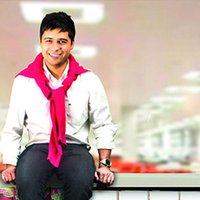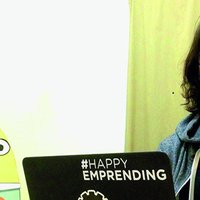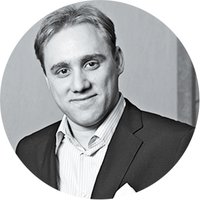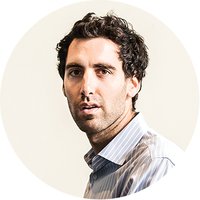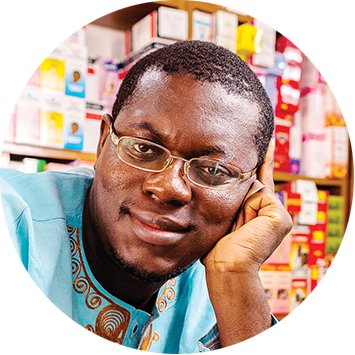“I grew up in Ghana, where we’d inherited the British boarding school system. At Presbyterian Boys High School, many upperclassmen were abusive toward the younger students. Once, I was made to stay awake all night in a kneeling position outside. But in my final year at school I became student council president and led efforts to reduce abuses. That experience opened my eyes to a whole new world of fighting the system—of being an activist. And this led directly to my becoming a technology innovator.
A few years later, after studying astrophysics at Durham University in the U.K., I transferred that instinct to try to help African farmers. They grow food organically by default, because they don’t have money for chemicals. But they also don’t have money for the organic certification process that would let them get better prices. So in 2005, I led a team of PhD students to try to implement a solution using mobile technology.
The idea was that at the point of sale there’d be a code on the product. You’d enter that in a mobile device, and up will pop the history and even pictures of the farm. But we realized a big flaw: farmers have to be trained to do the coding. This was not practical.
But picking up a fruit and wanting to know if it is organically grown is similar to picking up a pack of medicine and seeing if it was properly tested and certified. About 2,000 people die every day from counterfeit medicine. So we shifted the idea to pharmaceuticals.
In 2007 we set up a nonprofit organization in Ghana and rolled out a pilot, and the next year Nigerian health officials invited us to replicate the concept there. But we wanted to get to a point where a big company like Sanofi-Aventis would use us. We learned that most companies won’t do business with an NGO, so in 2009 we launched mPedigree as a business.
You can send a free text message and get a reply in a few seconds verifying [that a medicine] is authentic. In addition, distributors and other middlemen can check the codes to verify that the supply has not been compromised. This helped reveal to a major Indian company that there was pilfering at a depot. Genuine antimalarial medicines would be replaced by counterfeits. The shady characters cannot get away with this anymore. If we had not stopped these leakages in the supply chain, they could have put thousands of patients at risk.
The system is used in Ghana, Nigeria, Kenya, and India, with pilots in Uganda, Tanzania, South Africa, and Bangladesh. We’ve got a relationship with many of the major regional—and a growing number of multinational—pharmas, including Sanofi-Aventis. In Nigeria our codes are on 50 million packs of antimalarial drugs alone, and we have just signed up two Chinese drug makers.
We are now expanding to seeds, cosmetics, and other businesses. And new applications are emerging that we hadn’t expected, in the areas of logistics, supply chain management, and marketing. If you send an SMS to check authenticity, you’ve also given good information about exactly where and when a drug was sold—as well as provided a potential marketing opportunity to dispense coupons. We have built a major platform for supply chains in the developing world. But back at my school, of course, they still remember me as the activist.”
—as told to David Talbot
